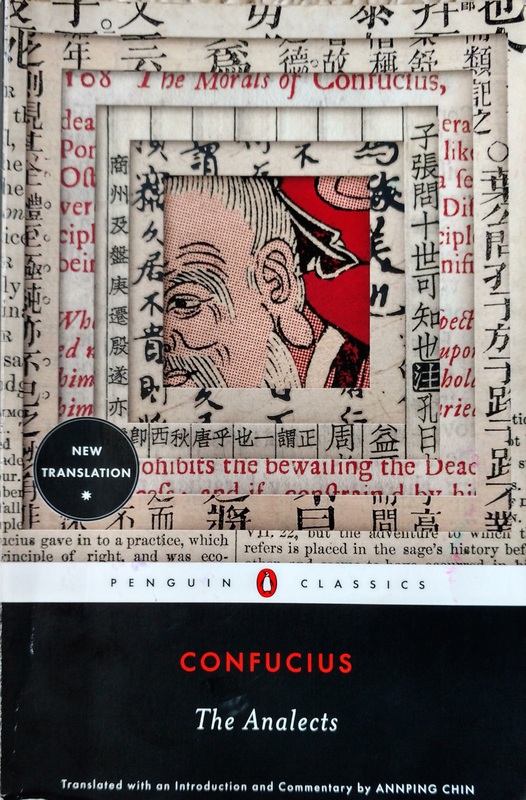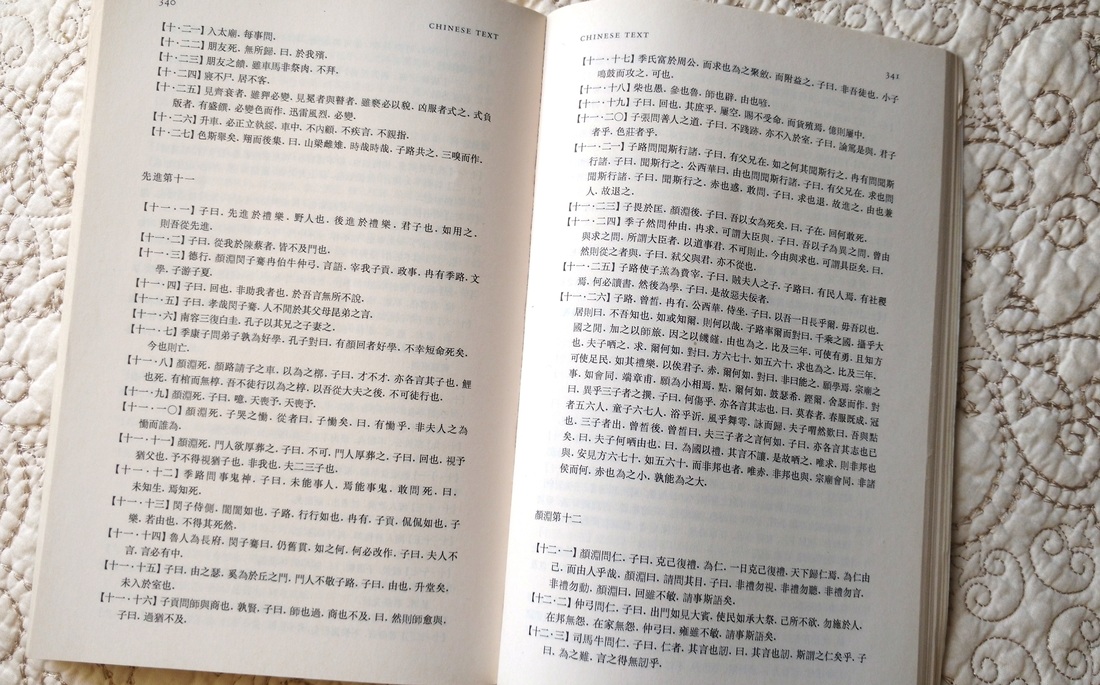|
6.20 The Master said, “To know something is not as good as to have a love for it. To have a love for something is not as good as to find joy in it.”
He clarifies what qualities are most important in the individual. 4.1 The Master said, “A neighborhood suffused with a humane spirit [liren] is beautiful. How can a man be considered wise when he has a choice and does not settle on humaneness?” 12.16 The Master said, “A gentleman helps others realize what is good in them. He does not help others to realize what is reprehensible about them. A petty man is just the opposite.” He comments on wealth and poverty, something so central to the history of humankind. He opening voices his admiration for others. (part of) 4.5 The Master said, “Wealth and eminence are what people desire. If you cannot acquire them by proper means, you should not accept them. Poverty and lowly position are what people despise. If you cannot avoid them by proper means, you should not reject them.” 6.11 The Master said, “What an extraordinary man was Hui [Yan Hui]! Living in a shabby neighborhood on a bowlful of millet and a ladleful of water—most people could not have endured such misery, but Hui did not let it take anything away from his joy. What an extraordinary man was Hui!” The way in which Confucius refers to himself was fascinating to read. Did he know how his words would inspire cultures, governments, individuals, thousands of years after his death? He can be guarded, but in the moments he reveals himself it is striking, and I for one couldn’t help but feel a great deal of affection for the speaker. 5.26 Zilu said, “We would like to hear what you would like to see yourself accomplish.” The Master said, “To give comfort to the old, to have the trust of my friends, and to have the young seeking to be near me [huaizhi].” 7.19 The Governor of She asked Zilu about Confucius, and Zilu gave no answer. The Master later said to Zilu, “Why didn’t you simply say that he is the sort of person who forgets to eat when pursuing a question, who forgets to worry when suffused with joy, and who does not note that old age is coming?” He is demanding when it comes to being a leader. Giving recommendations so many could learn from.
13.13 The Master said, “If you know to correct yourself, what difficulty will you have should you decide to serve in government? If you do not know to correct yourself, how can you hope to correct others?” 2.13 Zigong asked about the gentleman [junzi]. The Master said, “He first puts his words into action. He then lets his words follow his action.” He observes about life and death. 11.2 Jilu [Zilu] asked about how to serve the spirits of the dead and the gods. The Master said, “You can’t even serve men properly, how can you serve the spirits?” “May I then ask about death?” “You can’t understand life, how can you understand death?” The Analects gave me new ways of looking at the world around me, and defined things I did not know were already a part of my life. These did not feel like orders or requirements, but helpful suggestions. I can imagine that each reader would be touched by different passages at different times in life. Some things were beyond my comprehension, others rung true for the present. And every once and awhile a phrase would grab me and never let go of its mystery. 9.28 The Master said, “Only in the deepest winter do we realize that the pine and cypress are the last to shed their leaves.” For more information on this series of posts focused on the reading of different religious texts see my original post Reading Religion Part I: The Quran. Comments are closed.
|
SAMANTHA KEOGHMultidisciplinary Artist Archives
April 2020
|

